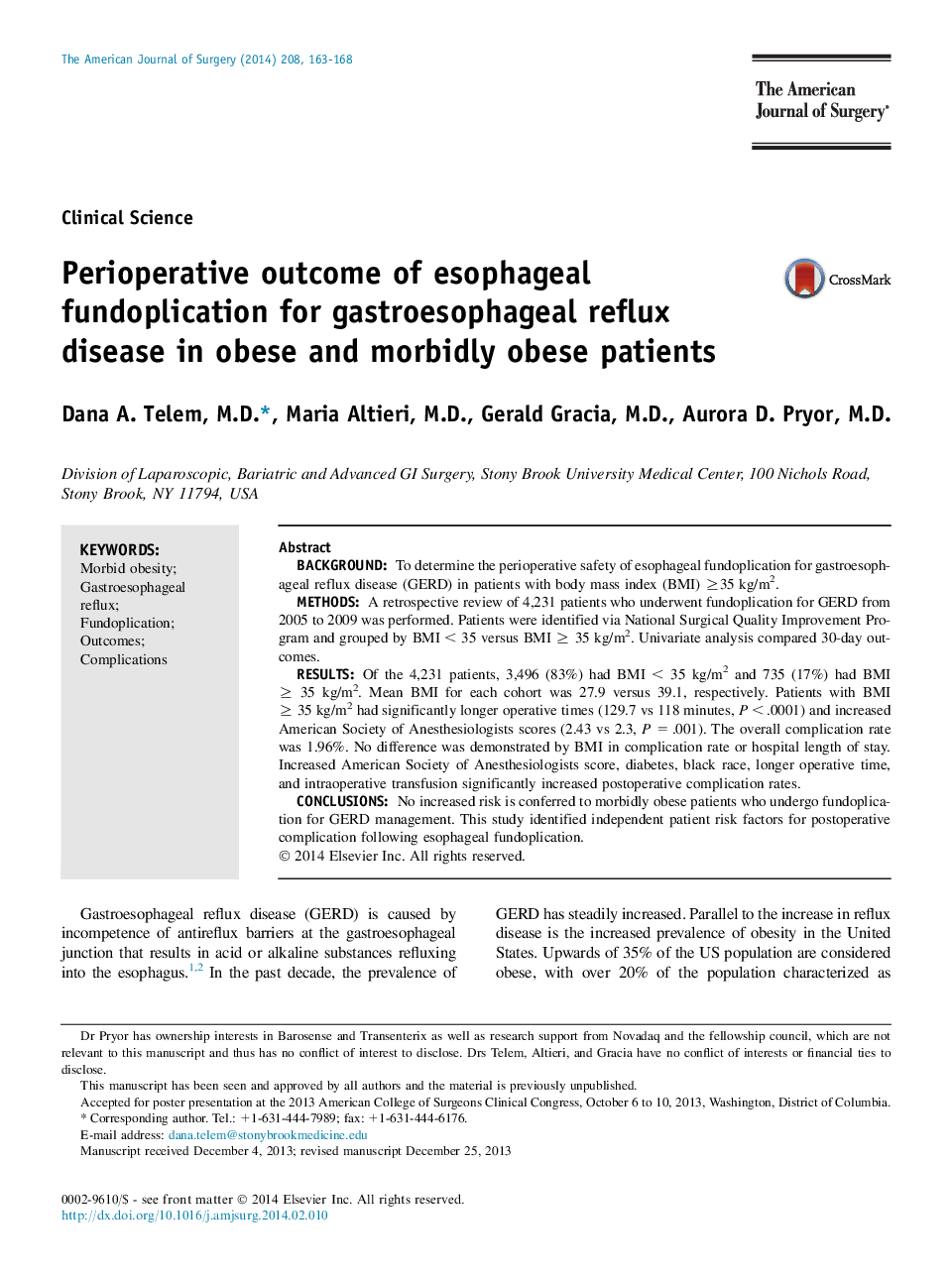| Article ID | Journal | Published Year | Pages | File Type |
|---|---|---|---|---|
| 4278559 | The American Journal of Surgery | 2014 | 6 Pages |
BackgroundTo determine the perioperative safety of esophageal fundoplication for gastroesophageal reflux disease (GERD) in patients with body mass index (BMI) ≥35 kg/m2.MethodsA retrospective review of 4,231 patients who underwent fundoplication for GERD from 2005 to 2009 was performed. Patients were identified via National Surgical Quality Improvement Program and grouped by BMI < 35 versus BMI ≥ 35 kg/m2. Univariate analysis compared 30-day outcomes.ResultsOf the 4,231 patients, 3,496 (83%) had BMI < 35 kg/m2 and 735 (17%) had BMI ≥ 35 kg/m2. Mean BMI for each cohort was 27.9 versus 39.1, respectively. Patients with BMI ≥ 35 kg/m2 had significantly longer operative times (129.7 vs 118 minutes, P < .0001) and increased American Society of Anesthesiologists scores (2.43 vs 2.3, P = .001). The overall complication rate was 1.96%. No difference was demonstrated by BMI in complication rate or hospital length of stay. Increased American Society of Anesthesiologists score, diabetes, black race, longer operative time, and intraoperative transfusion significantly increased postoperative complication rates.ConclusionsNo increased risk is conferred to morbidly obese patients who undergo fundoplication for GERD management. This study identified independent patient risk factors for postoperative complication following esophageal fundoplication.
